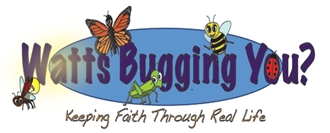
When talking with parents who are thrown into life’s challenges, the first reaction is what’s going to happen? The next reaction is what questions will my child ask? The third reaction is to worry if your child is like mine. The Sherlock Holmes child who asks questions until they are comfortable with the response. Truthfully, most of my daughter’s questions fit into “where is the milk” category, but there are three distinct times when my 8 yr. old daughter being a Sherlock Holmes child asked the big, scary, real questions. The questions where you want to go hide under a rock. Below is our story and how our family decided to respond when we had a Sherlock Holmes child and life gave us bumps instead of straight sailing…
Our story started when my daughter was 5 years old. She began to ask the tough questions about her adoption.. Then first grade came and our daughter asked questions about being diagnosed with ADHD. Then last week came and Ryley began to ask questions about saying goodbye to our beloved dog of 14 yrs.
Questions at 5 years old such as- “Why did my Mother not want me?” “So you’re not actually my real Mom?” “If my Mom doesn’t have money – why can’t she come live with us?”
Questions at 6 years old such as- “Why do I have to be the one with ADHD?” “Am I really crazy?” “Why do I have to take medicine – I don’t want to take medicine.”
Questions last week such as – “Why did you have to kill my dog?” “Why did he have to die?” “Was Mugsy mad at us?” “Why couldn’t Mugsy wait to die until I was home?”
Believe it or not, these were the questions Ryley asked plus a million more questions. Honestly, answering these questions wasn’t easy, but my first step was to think ahead. Before talking to Ryley, I thought of what questions Ryley might ask. Next, I wanted to consider Ryley’s point of view. Lastly, I knew it was important to answer my beloved daughter with understanding and respect. In the dichotomy of tough questions – I believe there are three categories: rejection, perception, and self awareness.
 Rejection Questions:
Rejection Questions:
Rejection questions are the questions children ask when steam is coming out their ears. They are angry and hurting. At this point the worst thing to do is answer their pain with your pain. So, when Ryley asked rejection questions such as: “why did my Mom not want me” or “why did you kill my dog”, I put a truthful yet positive spin on these questions, so, my responses did not fall into the rejection trap.
For example, with the “why did my Mom not want me question” – I answered: “Honey, it’s not that your birth Mother did not want you. Actually, you are a very lucky child because your father and I wanted you before you were born and your birth mother loved you so much she knew the best option for you was to join our family. In your case, you actually have more people who love you and who chose to love you including your birth mother.”
As for the “why did you kill my dog question” – I answered: “We would never choose to kill Mugsy. What we did choose was to take away Mugsy’s pain and to allow him to die as he would prefer to die; which was with as little pain as possible. We also knew Mugsy was older and would never get better, so, again our goal was to help our loved one not to hurt him. If we could we would have Mugsy live with us forever, but this was not a possibility.”
 Perception
Perception
Next are the perception questions – “So, you’re not actually my real Mom?”” If my Mom doesn’t have money – why can’t she come live with us?”” “Why do I have to take medicine – I don’t want to take medicine?”, “Why did my dog have to die”, and “Why couldn’t the dog wait to die until I got home?”. With these questions, emotion should never be at the center of the discussion. Instead focus on simplicity and sharing the facts. Later when you are by yourself cry, but it isn’t recommended at the moment. This is why preparation and taking a breath before answering is so important. Remember children are typically curious not malicious.
For the birth mother questions, I explained our different roles as Mothers. I also said there is a possibility for Ryley to meet her birth mother someday, but right now it is not feasible for her to live with us. I explained it doesn’t mean her birth mother doesn’t love Ryley, but right now we live separate lives and her birth mother loves Ryley by providing better opportunities for her and a better chance of Ryley living her best life.
For the ADHD questions, I admit to Ryley it’s hard when you have to do things others don’t have to do, but also say the medicine makes her better able to focus and do what she really wants to do. The medicine also plays a big part in her relationships with her friends, so, she can stay calm, have fun, and be at her best. Perhaps, one day the medicine won’t be necessary, but for right now we give Ryley medicine to help her not hurt her.
The death of our dog questions are the most difficult questions since our family is still dealing with the trauma and we know Ryley is hurting, but we like to say our decisions were made to help Mugsy who was suffering. We ask our daughter if she would like Mugsy to continue to suffer; which she promptly answers “No”. We then reply – “We also didn’t want our friend to suffer; which is why we couldn’t wait any longer”
 Self-Awareness
Self-Awareness
The last set of questions; which are the self awareness questions are tricky because you want to build your child’s self esteem not damage it. Children are afraid of everything society says is negative such as mental illness, learning disabilities, and hate emotions. Children don’t want you to be mad at them; which is why they ask questions such as why me? Like every other human, children are scared of being different.
With the self-awareness questions, I concentrate on Ryley’s strengths, show her how she is not different, and explain reality (eg. how the dog was really feeling). I actually say if Mugsy could talk – he would tell us how much he loves us, misses us, thanks us for being part of our family, and tells us how thankful he is for us saying goodbye and dying peacefully. I believe Mugsy would be sad, but he would also tell us, as hard as it was, it was time to let him go.
In the end, I try to shift Ryley’s thinking from my dog is mad at me or I’m crazy to life is not always what we hope for, but when we get lemons -it’s important to make lemonade. Our dog would never be mad at us for looking out for his best interest; which is why Mugsy trusted us like he did. Even in the last minutes of life, Mugsy listened to our calming voices. In regards to ADHD, treating ADHD or having ADHD doesn’t make you crazy. What makes you crazy is denying you have ADHD or listening to what society has to say about ADHD. With ADHD, you may have a lot of energy and problems focusing, but you also tend to be smart, funny, and perceptive. It’s all how you look at it.
In conclusion, tough questions are just like they sound – tough. You may not respond exactly how I responded, but the theme is to respond with patience, love, respect, and thought. In the end, you want children to ask the tough questions because it means they are growing, they care, and they want to understand. Our jobs as parents is to not shy away from tough questions, but to build our children into strong, wise, thought-provoking, and conscientious human beings. In the end, you’ll be happy you went through tough questions to find gold at the end of the rainbow.





